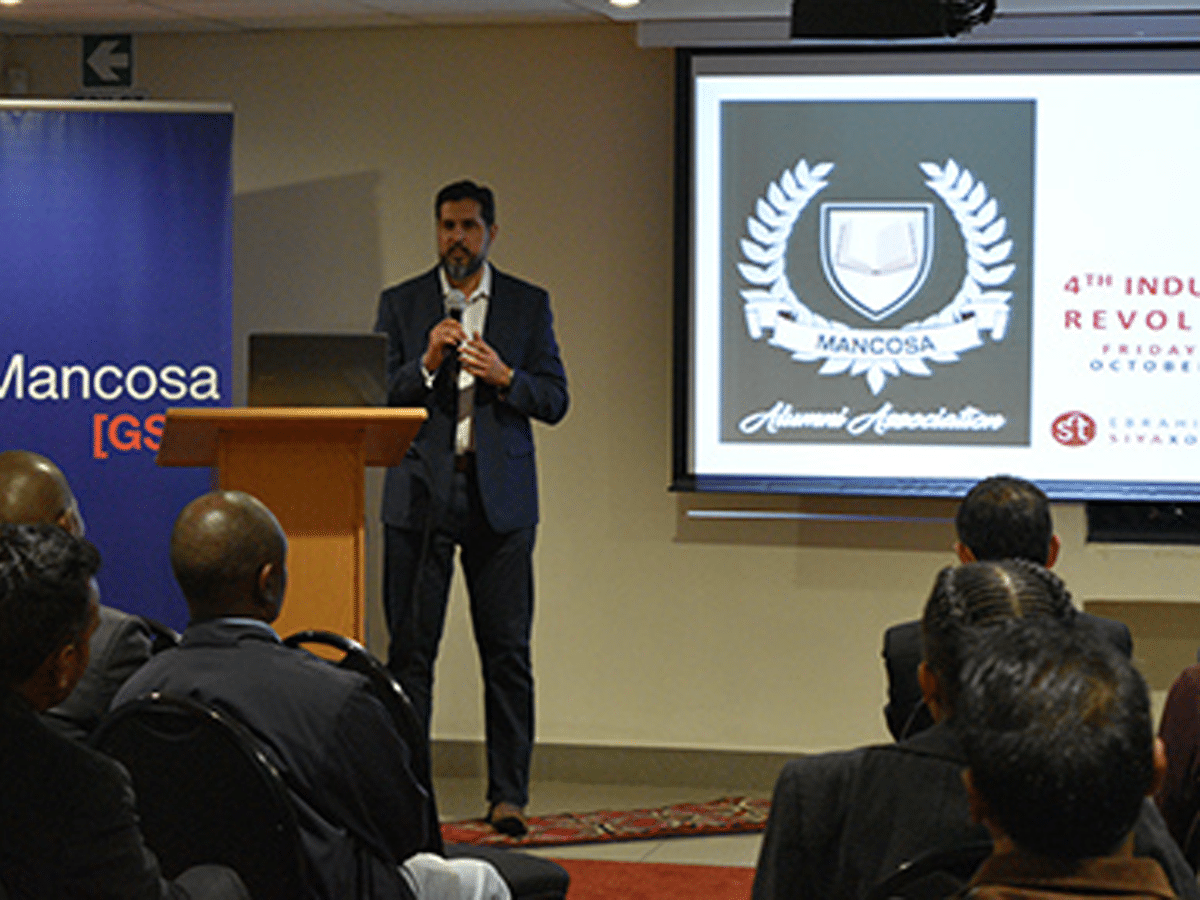The Value of a Postgraduate Diploma in Information Technology & Management
In this article, we’ll look at the benefits of studying for a postgraduate diploma in information technology and the careers you can get after completing this program.

Summary
With the rapid growth of technologies worldwide, there’s never been a better time to pursue a career in information technology.
Whether you’re planning on entering the world of IT or are already employed in this lucrative business environment, there are ways to cement your success and ensure you get hired into positions with high-income potential.
MANCOSA offers a Postgraduate Diploma in Information Technology Management that’ll build your IT knowledge and expertise so you can find a job in various IT roles.
In this article, we’ll look at the benefits of studying for a postgraduate diploma in information technology and the careers you can get after completing this program.
We’ll also discuss the differences between a postgraduate diploma and an honours degree so you can choose the best option.
Difference between a Postgraduate Diploma and an Honours Degree
While a postgraduate diploma and an honours degree may seem similar, the two have several differences, including the study level, skillset, study duration, and admission requirements.
Level of study and skillset
An honours degree is a postgraduate qualification awarded to individuals who’ve completed a bachelor’s degree with high academic achievement. It’s designed to provide advanced knowledge and skills in a particular field.
The postgraduate diploma is a shorter, more career-focused program. It focuses on particular areas of study, including coursework, practical experience, and job-related skills. This way, graduates can apply all the practical skills they’ve acquired directly after completing their studies.
Study duration
An honours degree typically requires an additional one to two years of study, while a postgraduate diploma takes one year to complete.
Admission requirements
The exact admission requirements may differ from program to program. However, general admission requirements for both honours and postgraduate diploma courses include a relevant bachelor’s degree or advanced diploma (at NQF level 7).
There may also be alternative routes, such as gaining entry based on Recognition of Prior Learning (RPL).
Benefits of a Postgraduate Diploma in Information Technology & Management
There are several reasons why taking information technology courses is an excellent choice. Some of the main benefits of attaining a postgraduate information technology diploma include but aren’t limited to the following.
Career opportunities
You can advance your career by specialising in a specific field of information technology, including artificial intelligence, information security, e-business, and more.
The need for AI specialists will rise with the rise of artificial intelligence. Daily Maverick have reported that AI could potentially increase South Africa’s profitability. Thus, SA business owners will need these professionals to grow and remain competitive.
Improved knowledge and skillset
A postgraduate diploma in information technology will equip you with advanced skills and knowledge of the IT industry.
You’ll learn additional practices that weren’t covered in your bachelor’s degree or advanced diploma. As a result, you’ll have a better chance to attain positions since you’ll stand out from other candidates.
Higher earning potential
A postgraduate diploma in information technology helps you acquire vast knowledge due to its extensive curriculum.
As your skills and knowledge grow, doors to higher-level positions will open. This means your income potential increases.
Job security
As you gain more knowledge and abilities, you’ll be seen as an irreplaceable asset to your company. This means in tough economic times, when retrenchments happen, the company you’re working for won’t want to lose you.
Roles and duties of specialised IT professionals
With technological advancements, all companies need IT as a permanent department or professional contracted service provider.
Below is a list of some of the responsibilities of IT professionals within organisations.
- Managing and maintaining IT infrastructure. This includes servers, networks, software, and more.
- Protecting data and information. They implement security measures, prevent breaches, and create firewalls and encryption.
- Developing and implementing tech solutions to improve the efficiency and effectiveness of processes. As a result, companies get to be innovative and remain competitive. This could include bespoke software, databases, AI, and machine learning.
- Updating systems to ensure they remain up-to-date with the latest advancements and other necessary aspects.
- Offering tech support, assisting with troubleshooting, and ensuring problems are solved quickly so workers don’t lose time on their work.
- Ensuring compliance with regulations, such as the POPIA.
Aside from working for an employer, IT professionals also have the option to open an independent IT solutions company and assist several clients at the same time. Thus, this offers an excellent entrepreneurial opportunity.
Opportunities for information technology courses
With continual advancements in the technological industry, now’s a great time to pursue a career in information technology.
There are several career options for students completing a postgraduate IT management diploma. Here are some of the top computer jobs you can consider.
- Application architects are responsible for designing the architecture of an application, performing code reviews, providing leadership to development teams, and more.
- Web developers are responsible for building and maintaining company websites. For each project, they must pay special attention to the company’s requirements to
ensure they create sites that accommodate them. They also need to maintain these sites and perform updates whenever necessary. - Data security analysts are responsible for protecting business data by implementing network security, administering firewalls, doing risk assessments, and more.
- Artificial intelligence specialists are responsible for working with organisations to identify and implement new and innovative technologies into their systems and daily operations.
- Business intelligence analysts are responsible for collecting and analysing data to determine business needs and give recommendations to company managers so they can make better decisions that’ll result in higher profits.
Register for a Postgraduate Diploma in IT with MANCOSA
Now that you’ve seen the excellent career opportunities the IT industry holds and what you can do with a postgraduate diploma in IT, are you ready to take the next step?
Have a look at what MANCOSA’s Postgraduate Diploma in Information and Technology Management includes so you can decide if it’s the right fit for you.
Want to talk to one of our consultants? Fill out this inquiry form, and we’ll get back to you!





